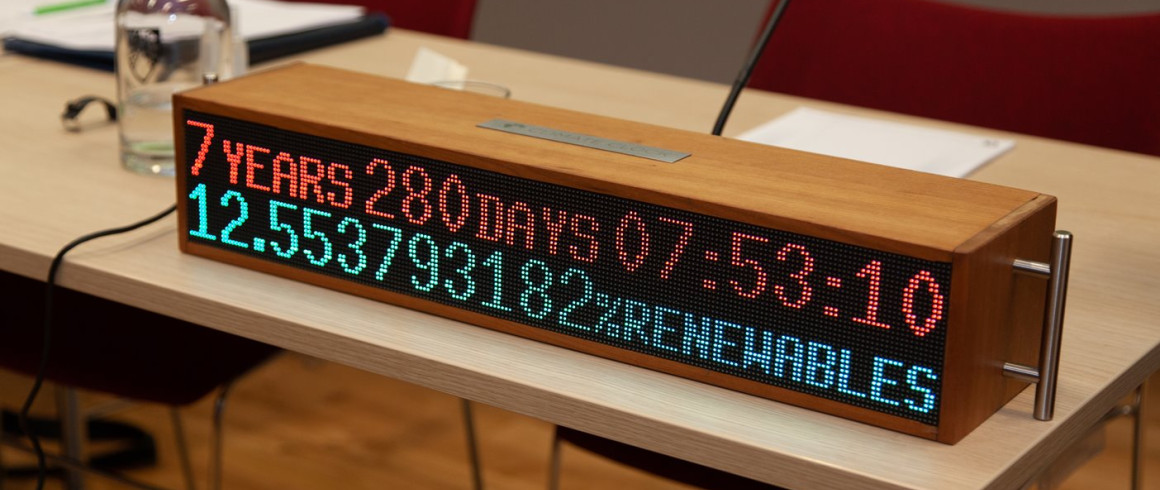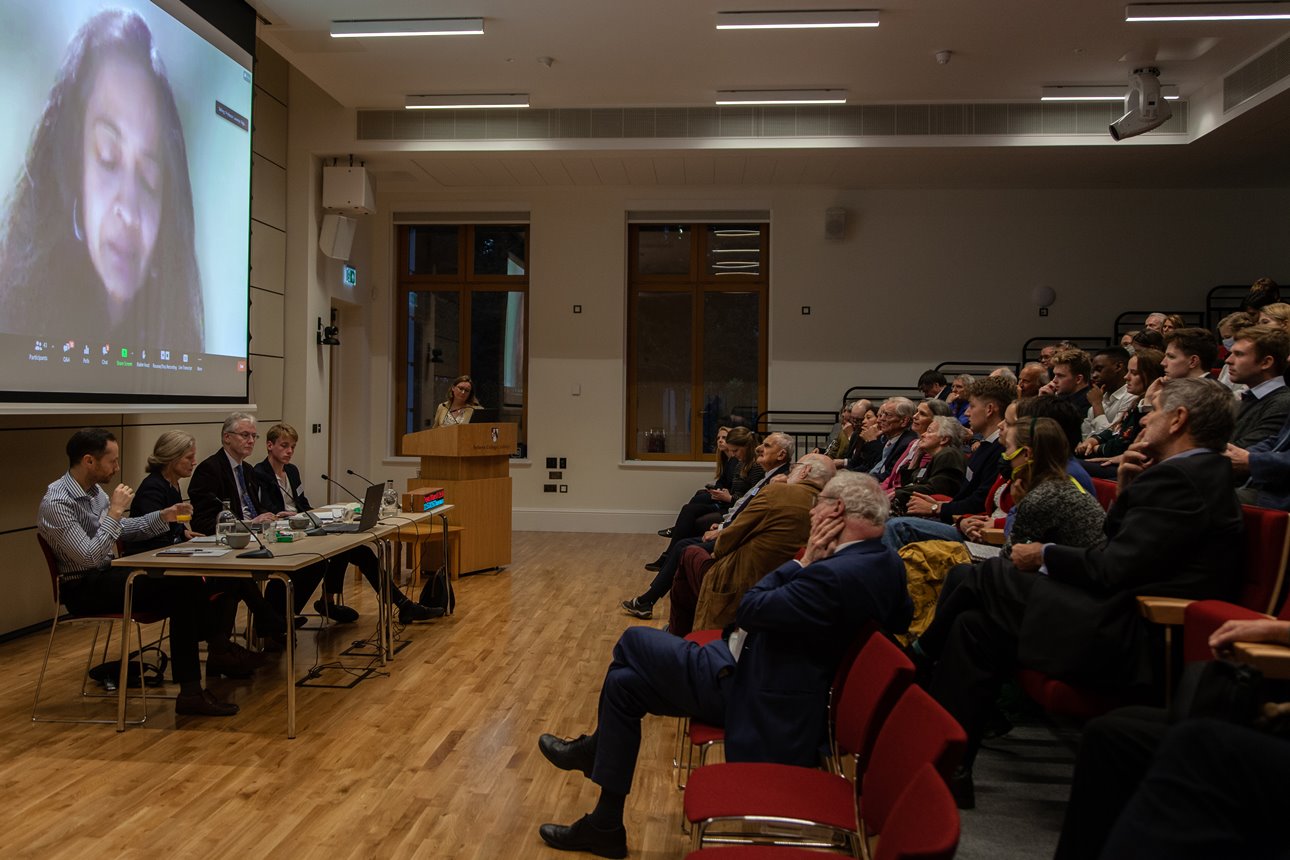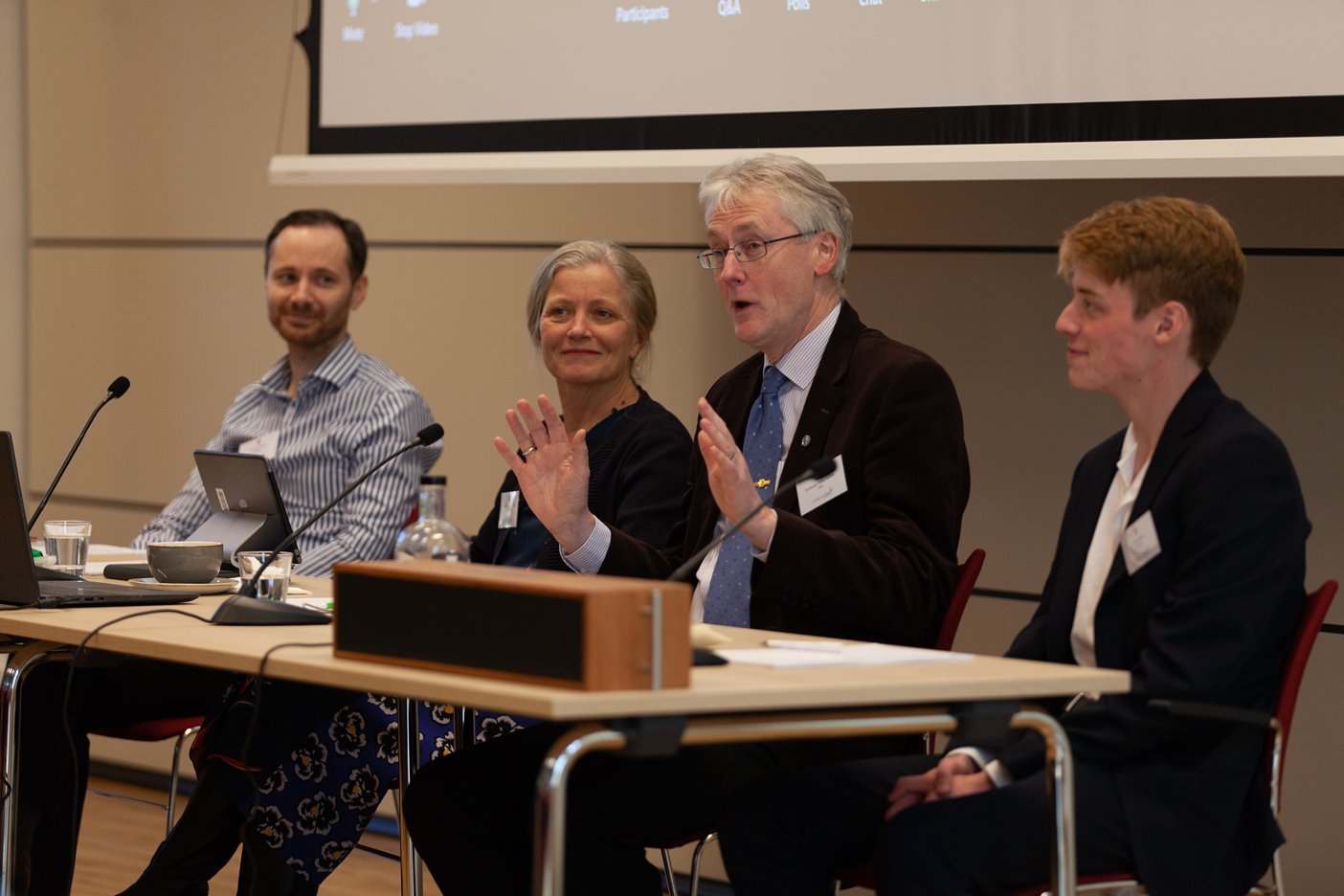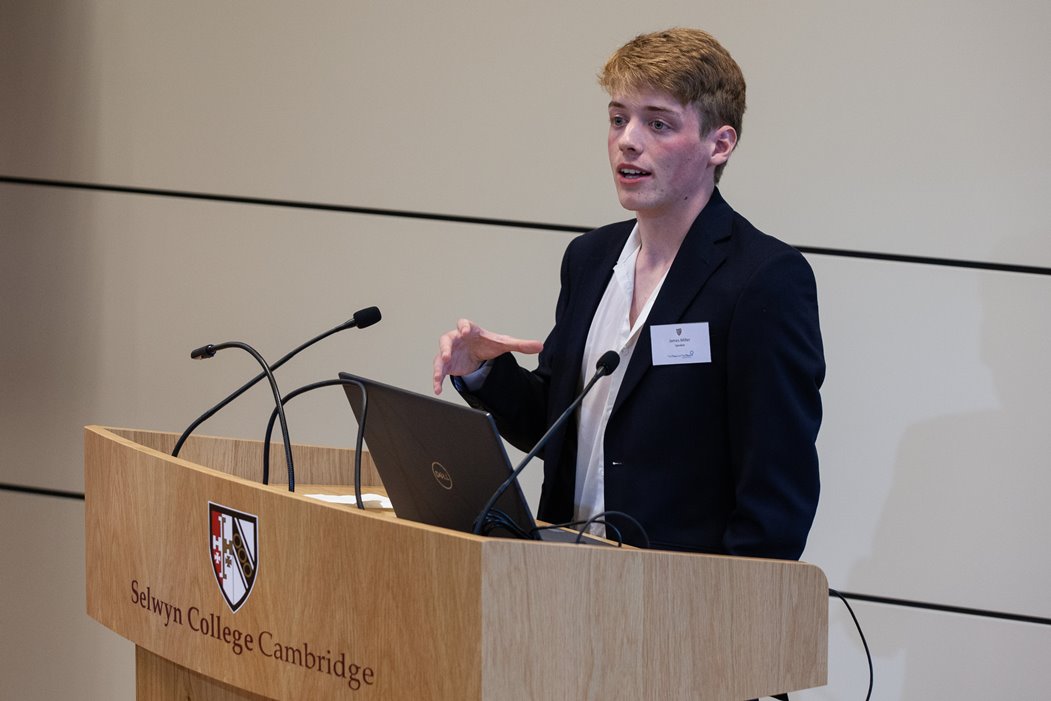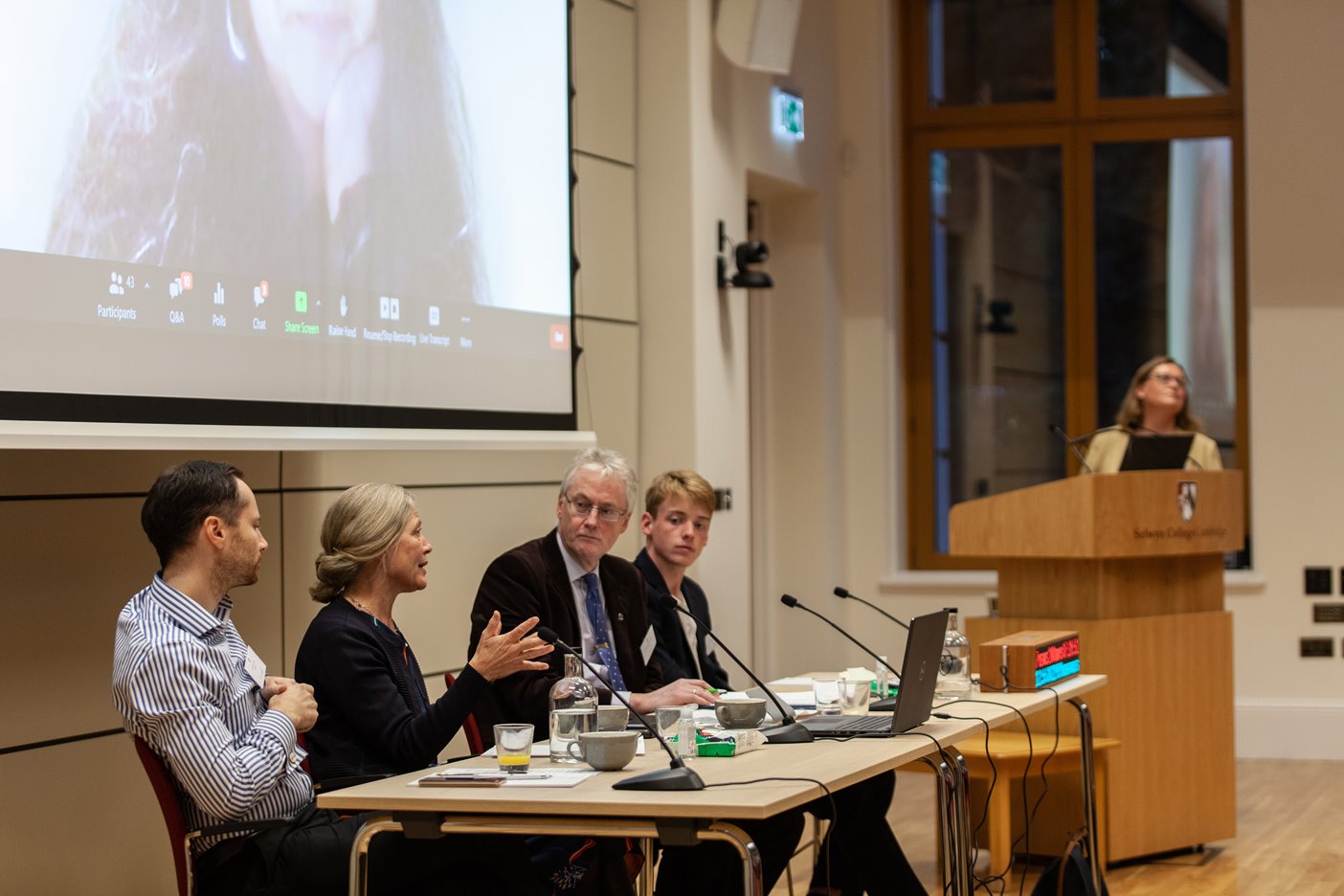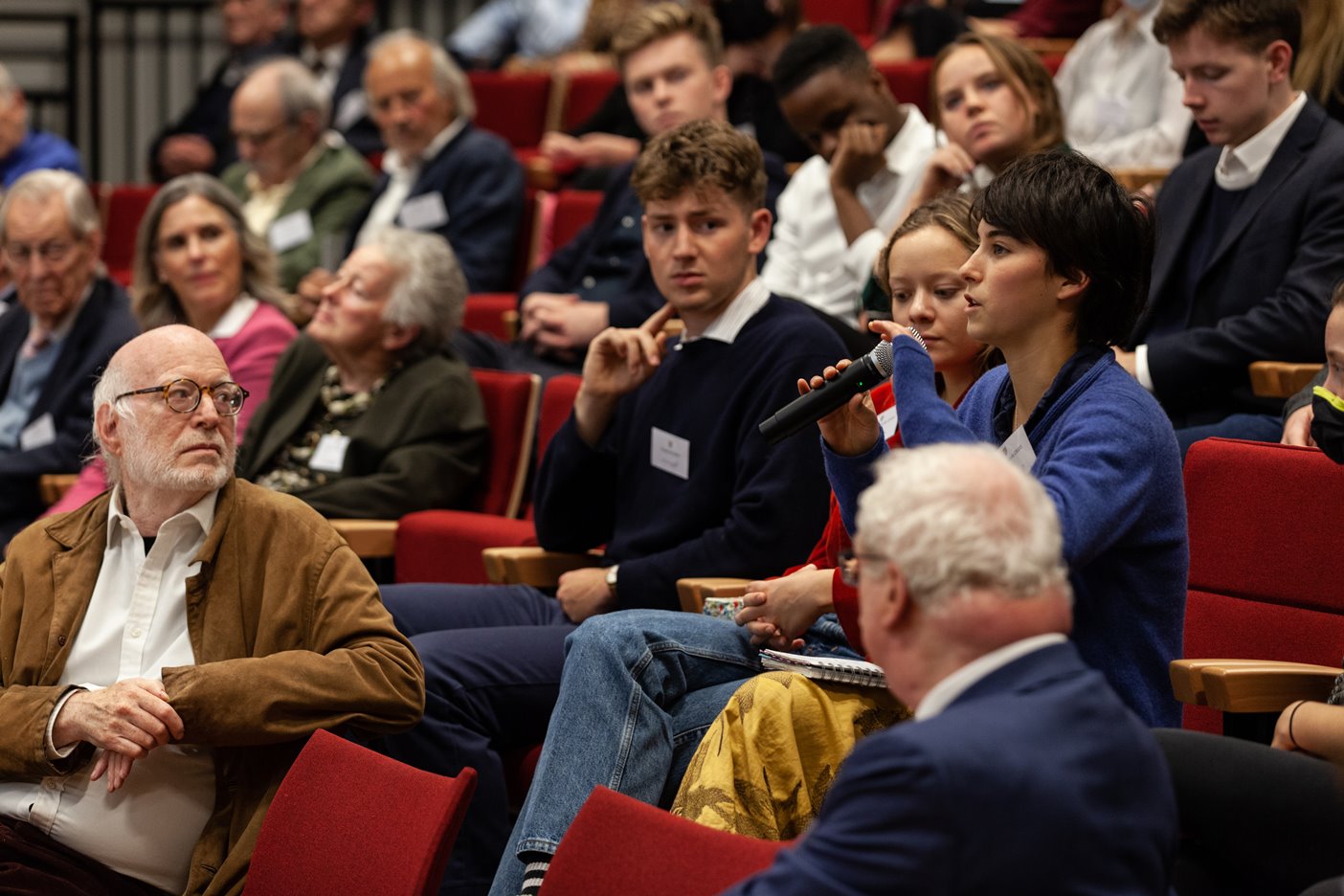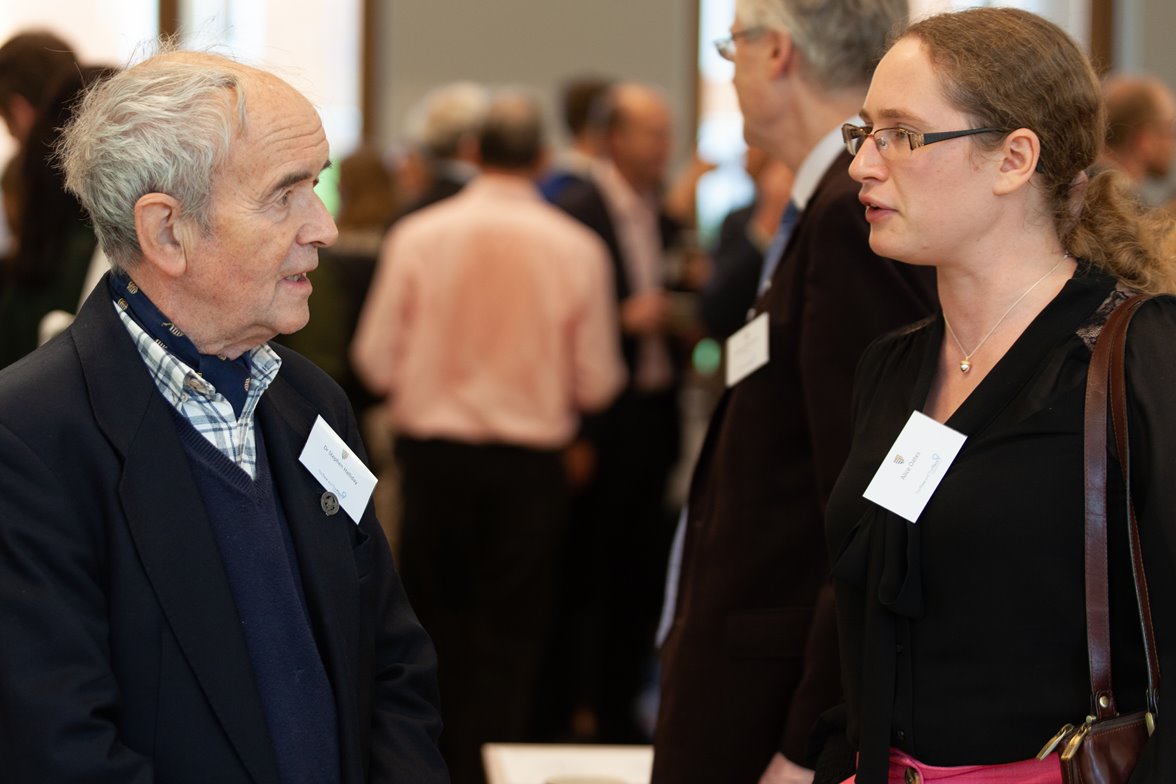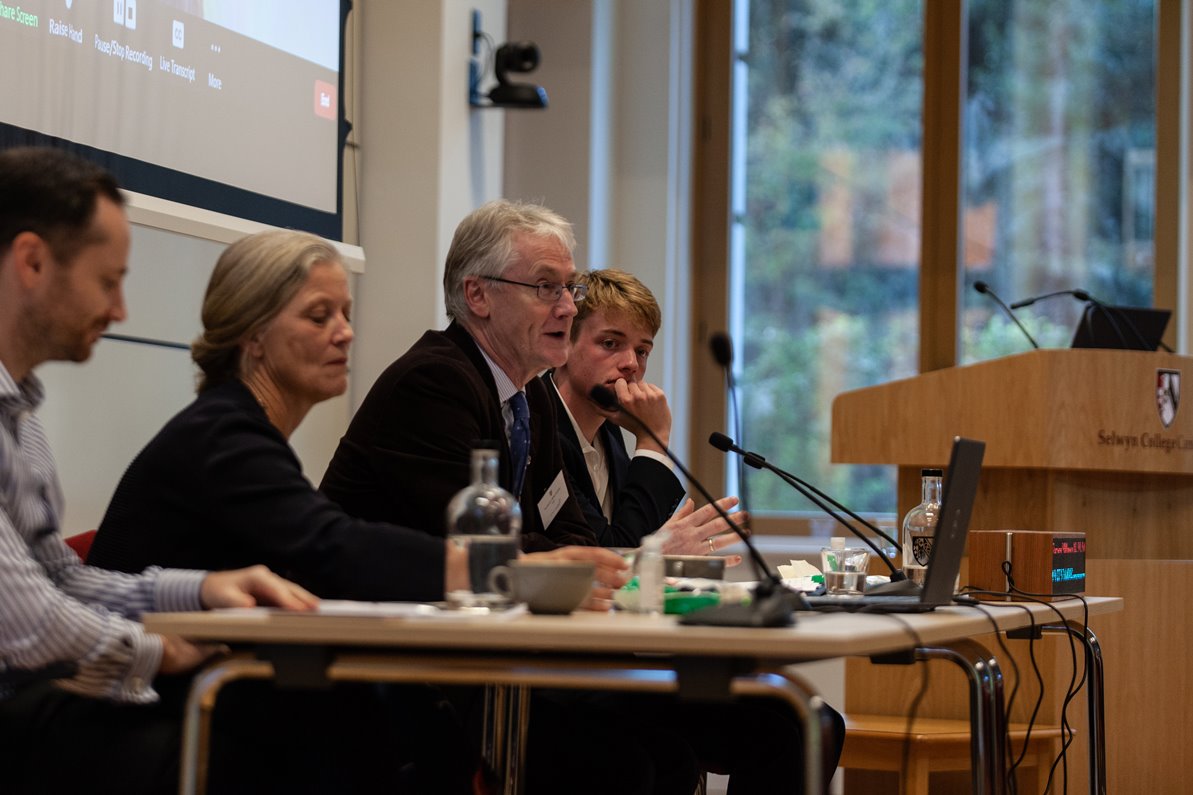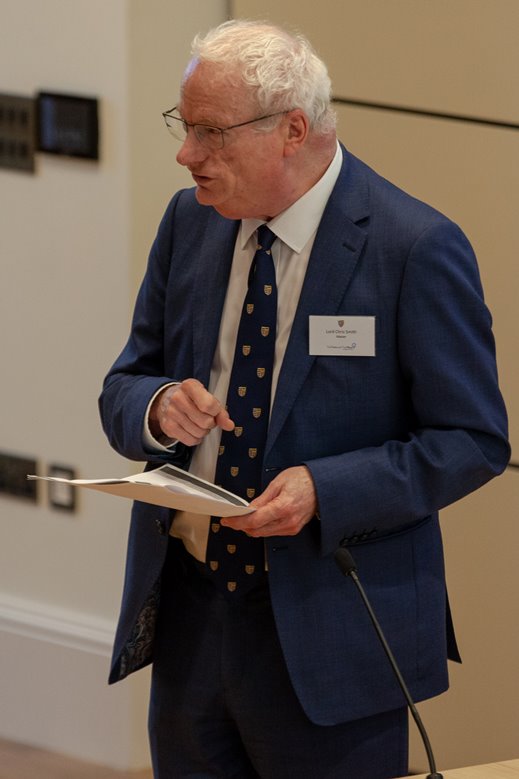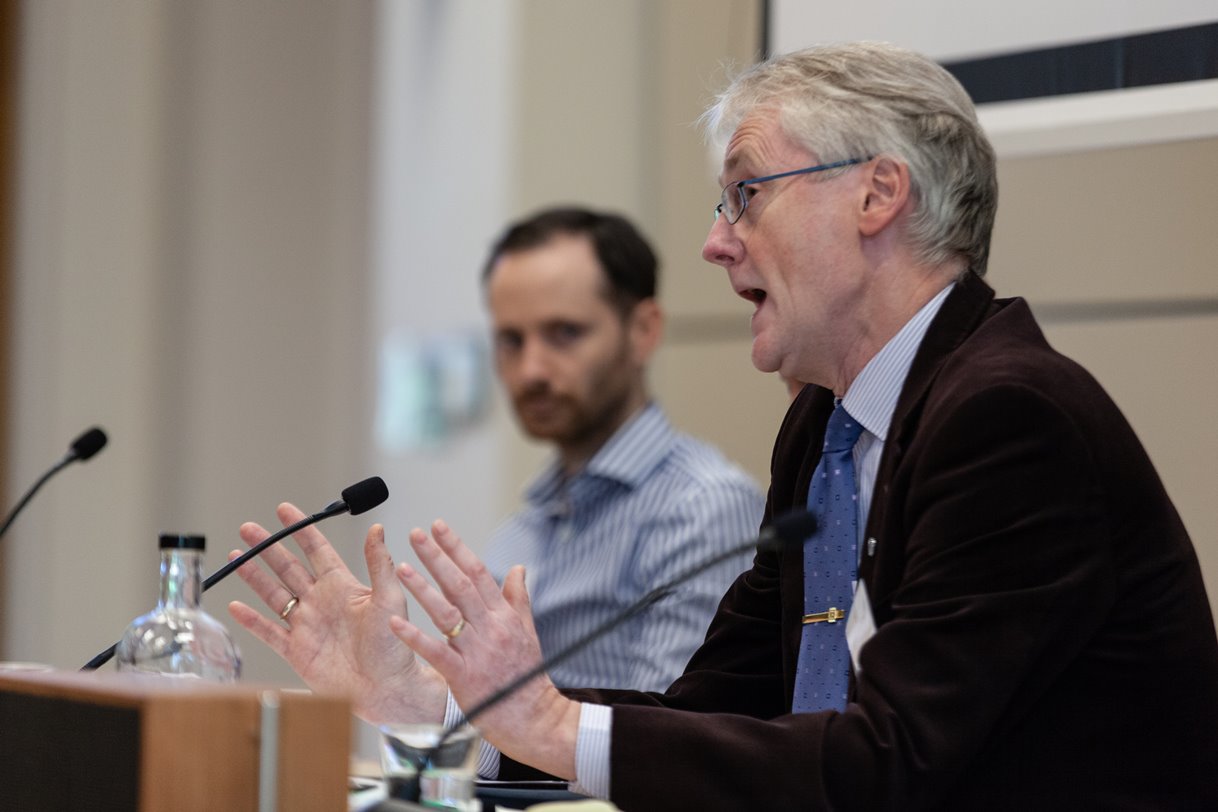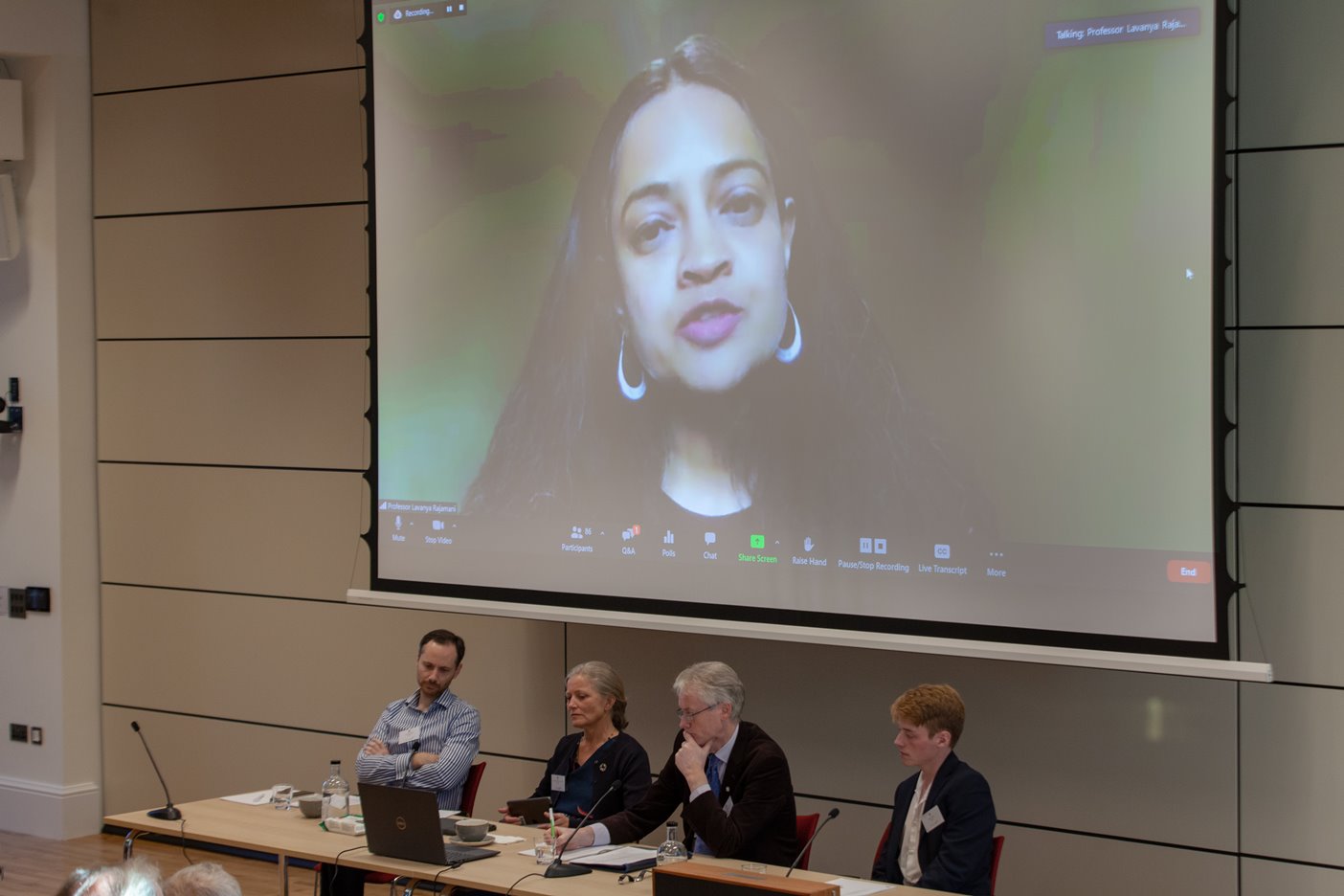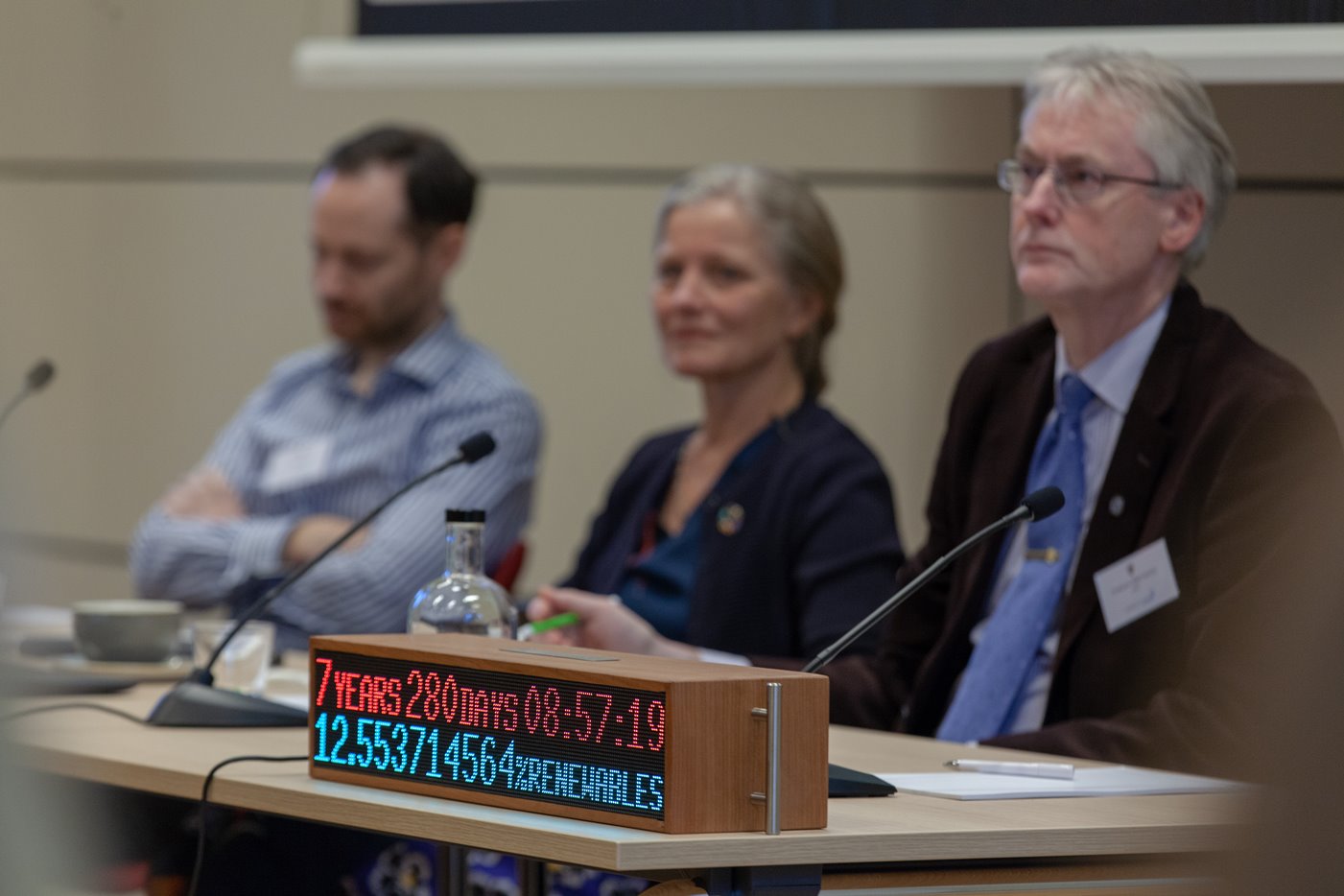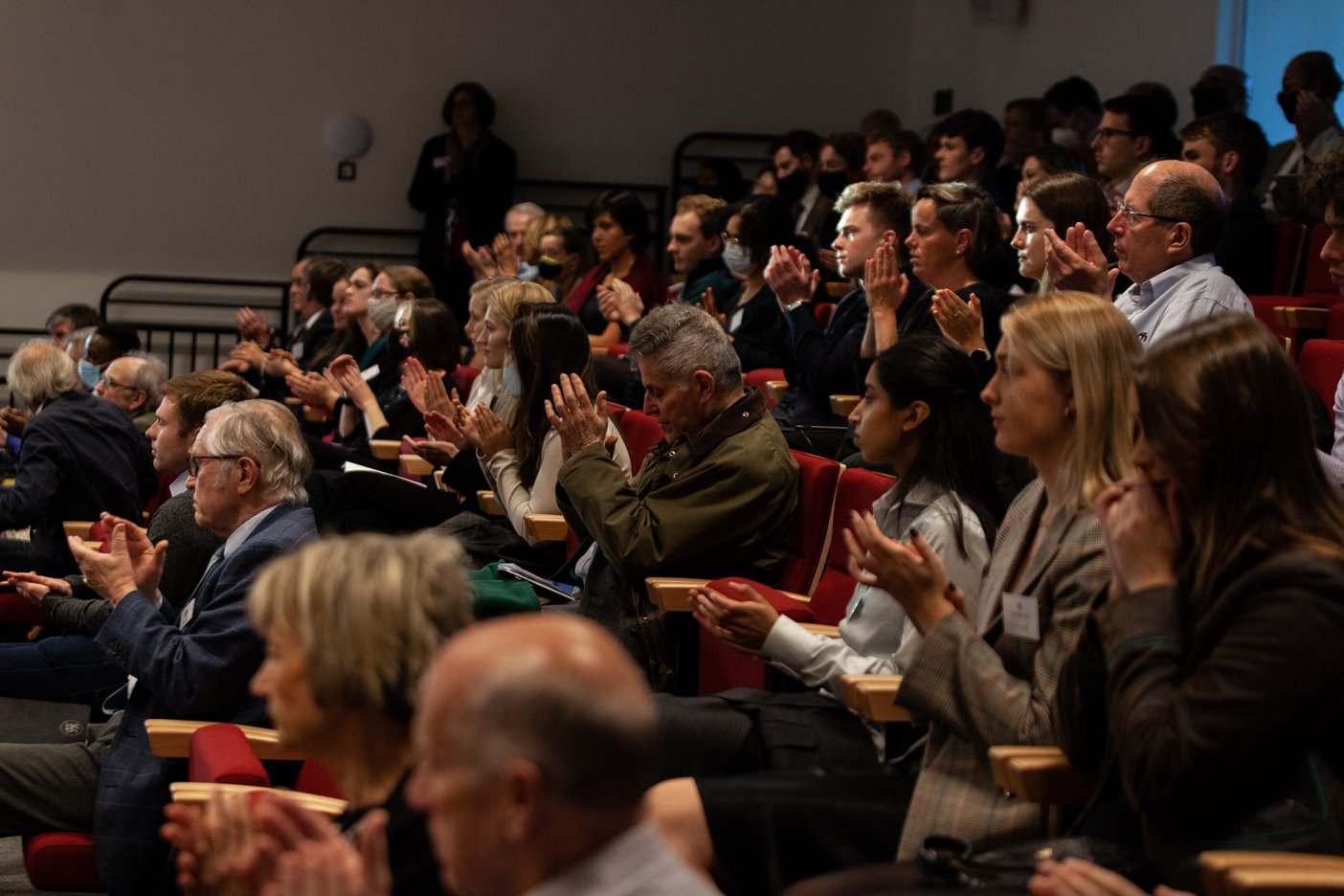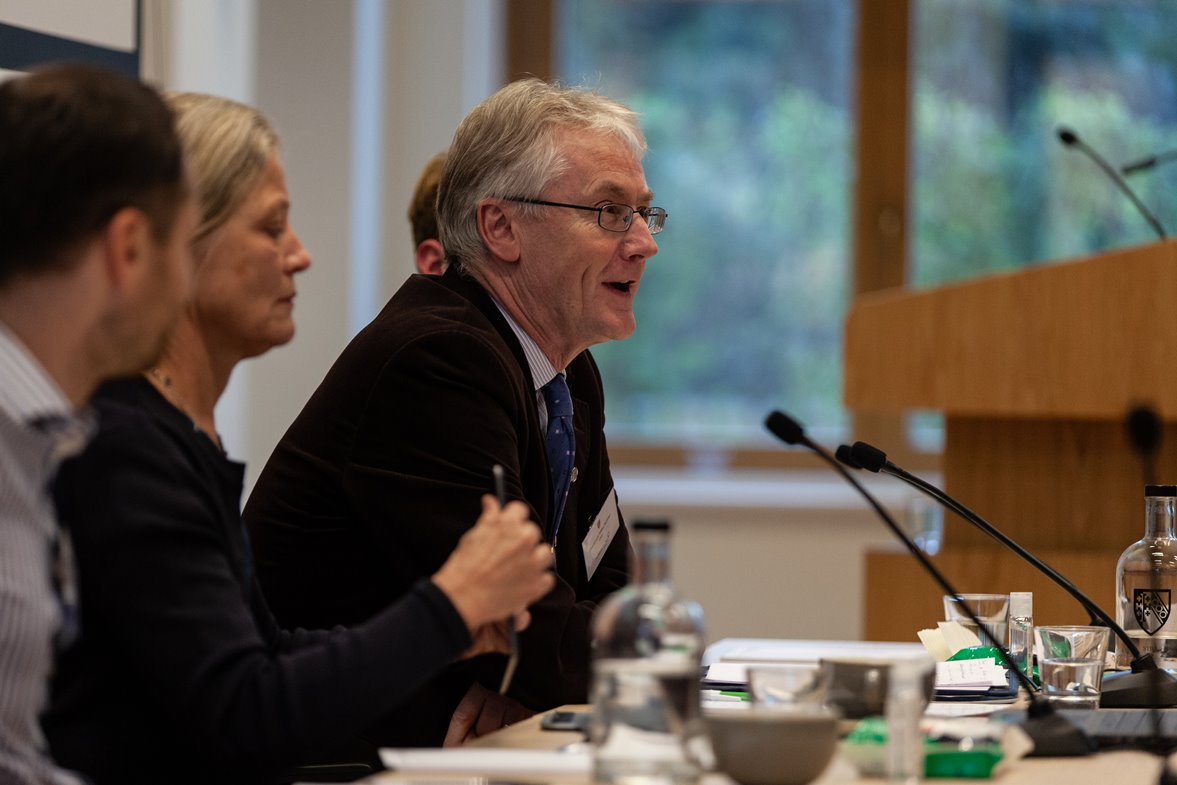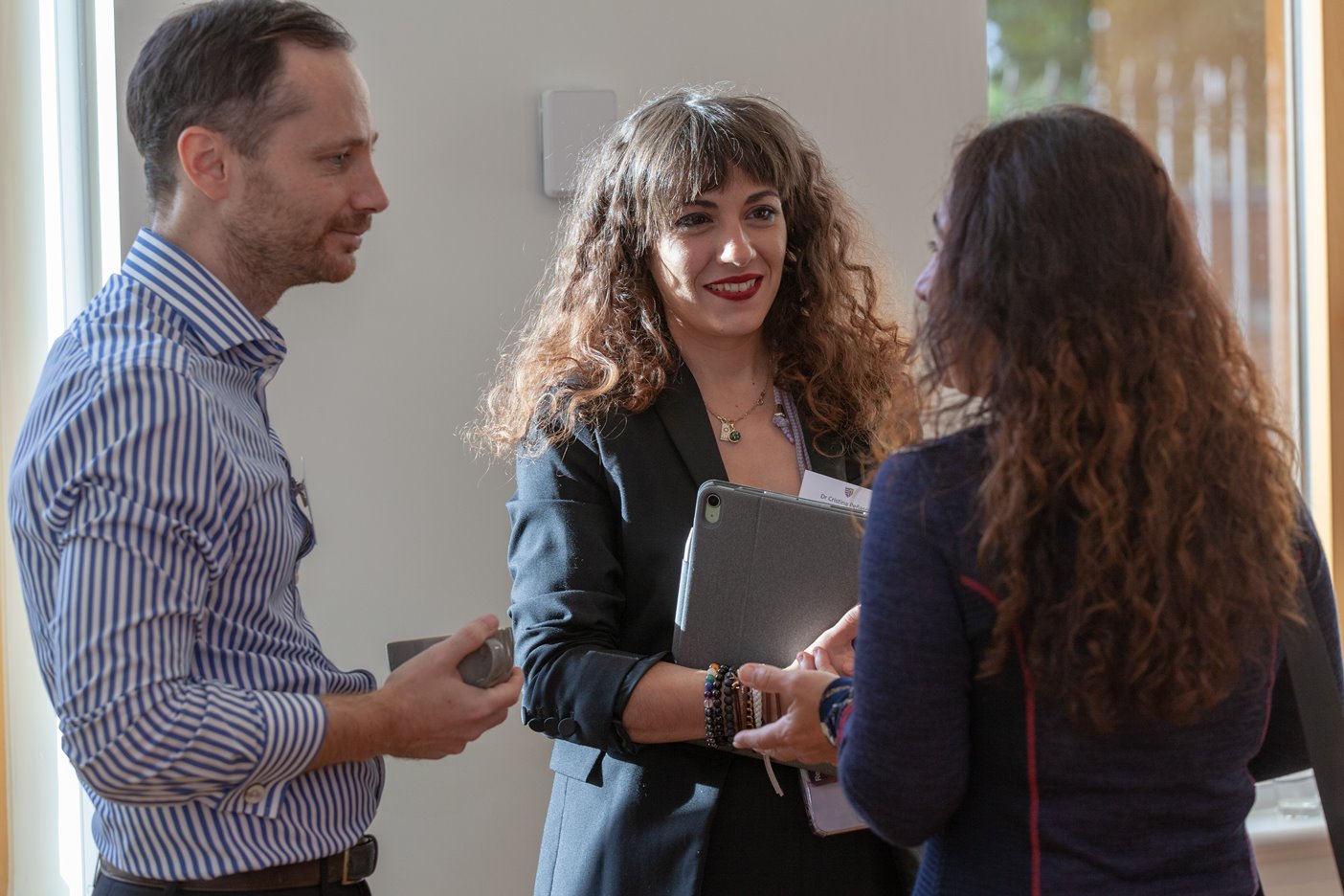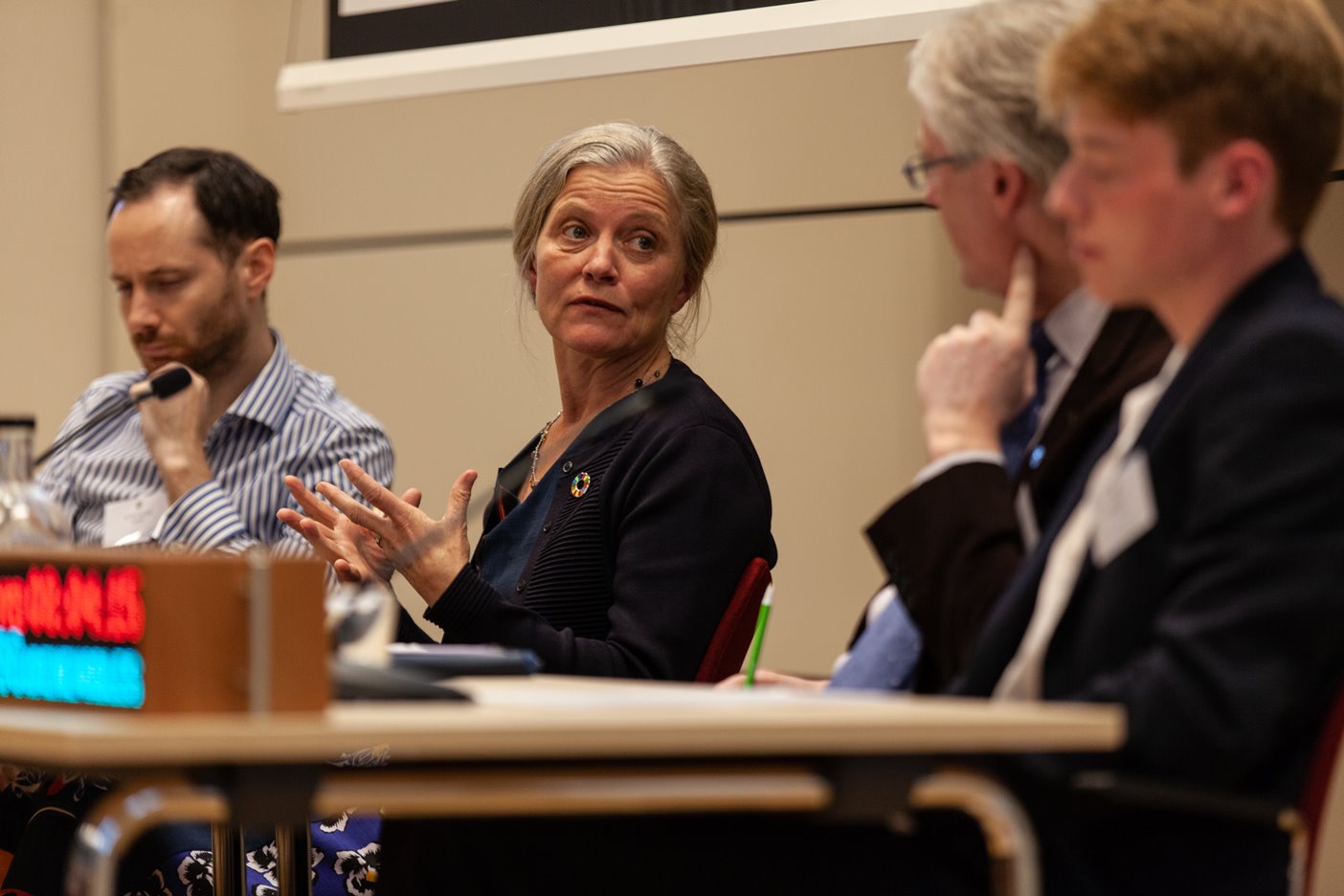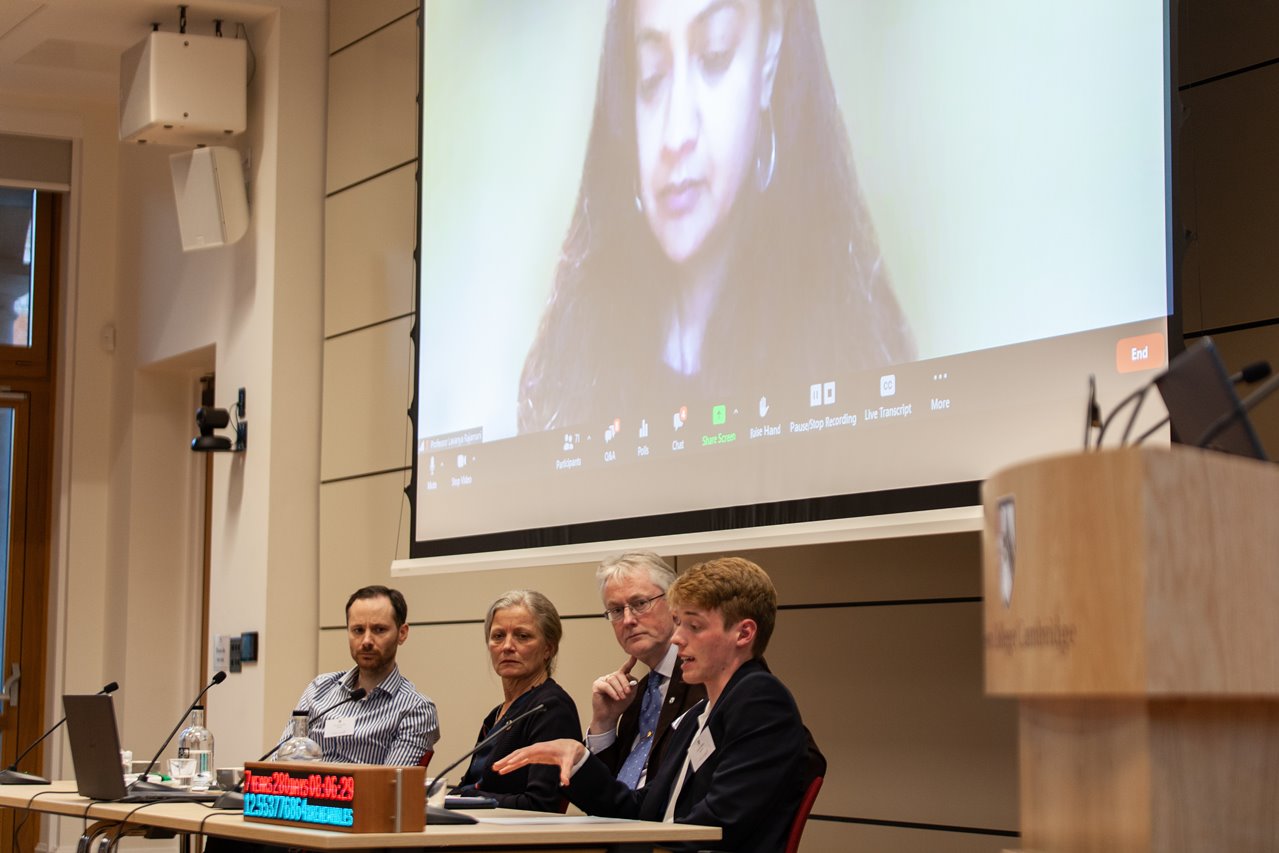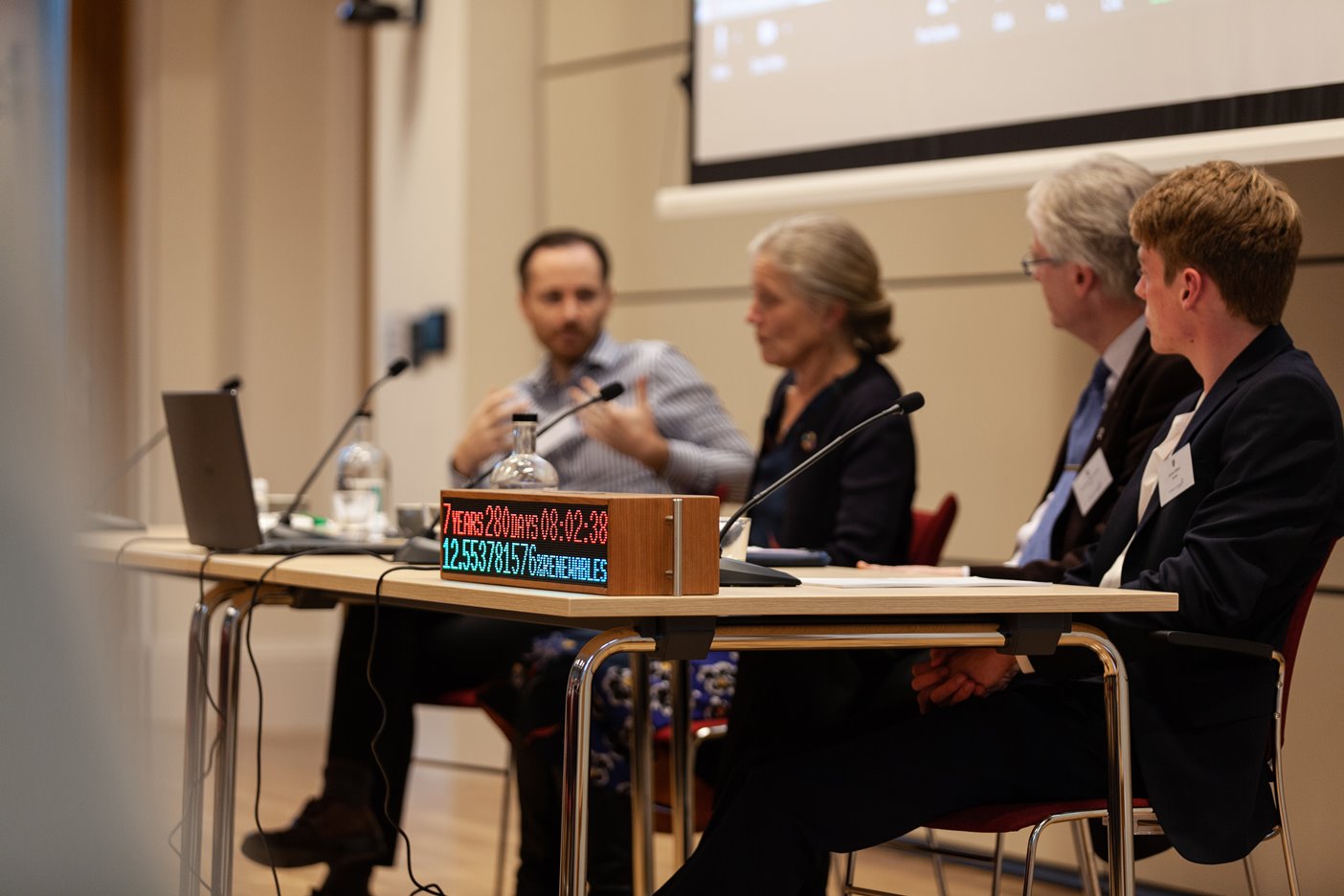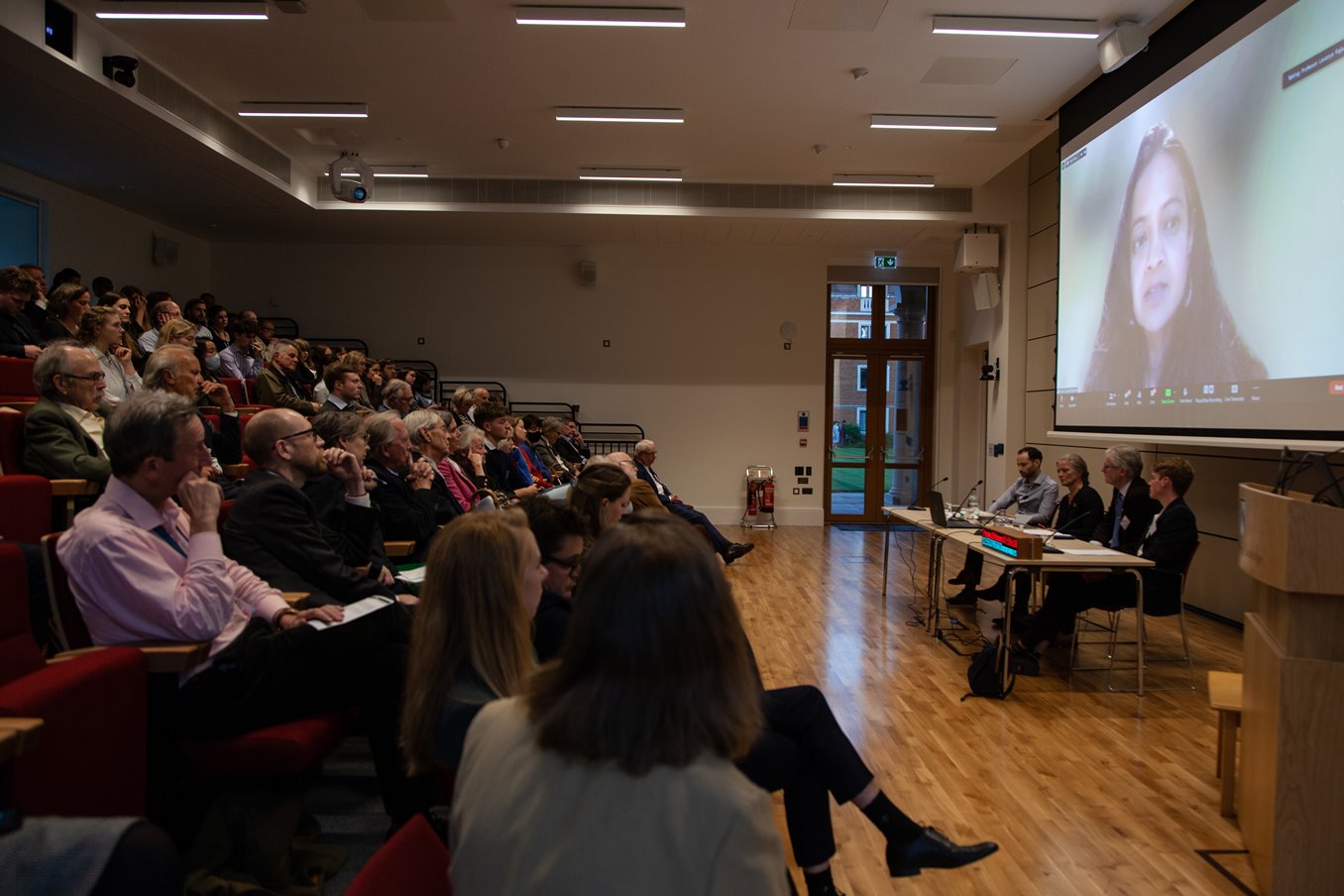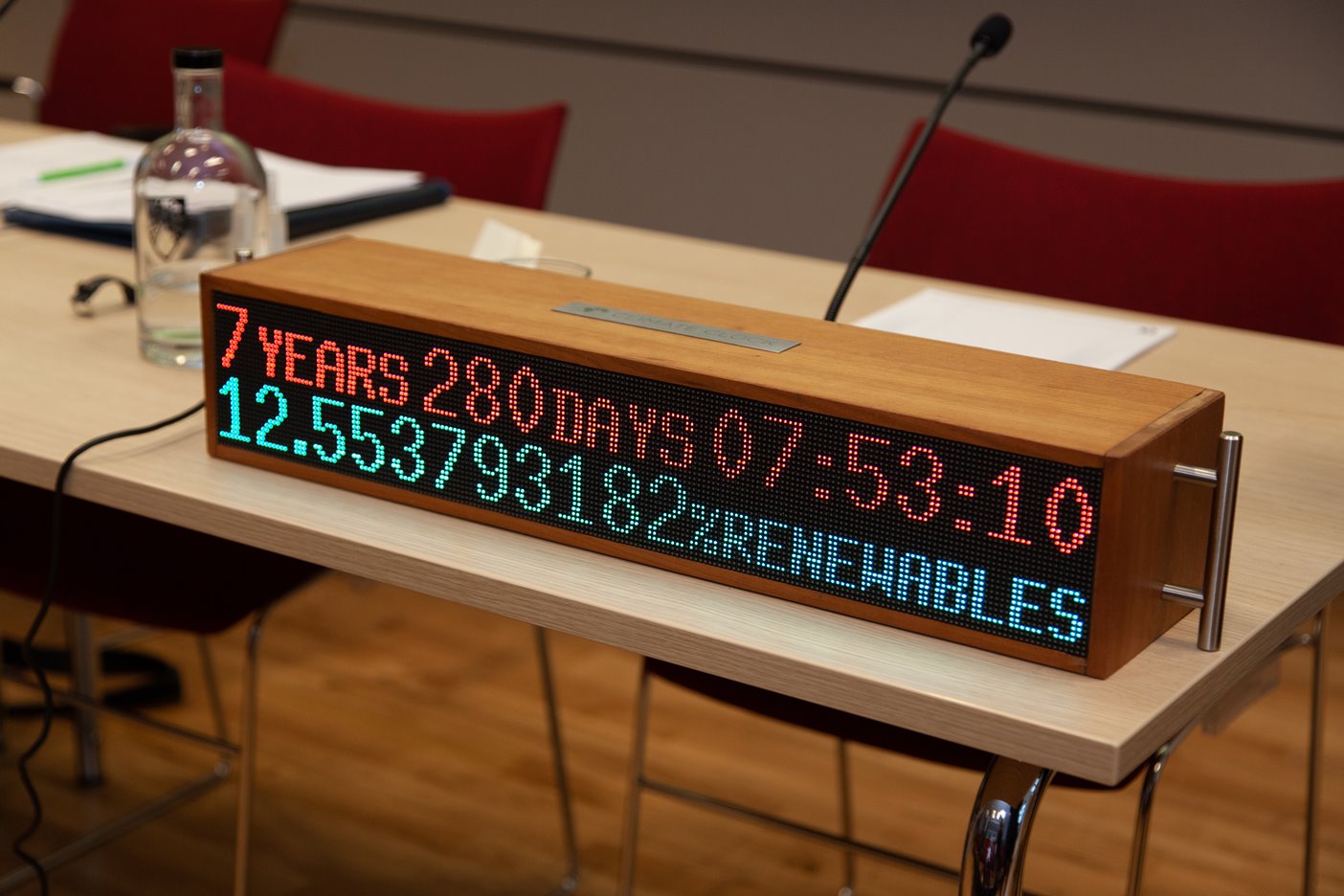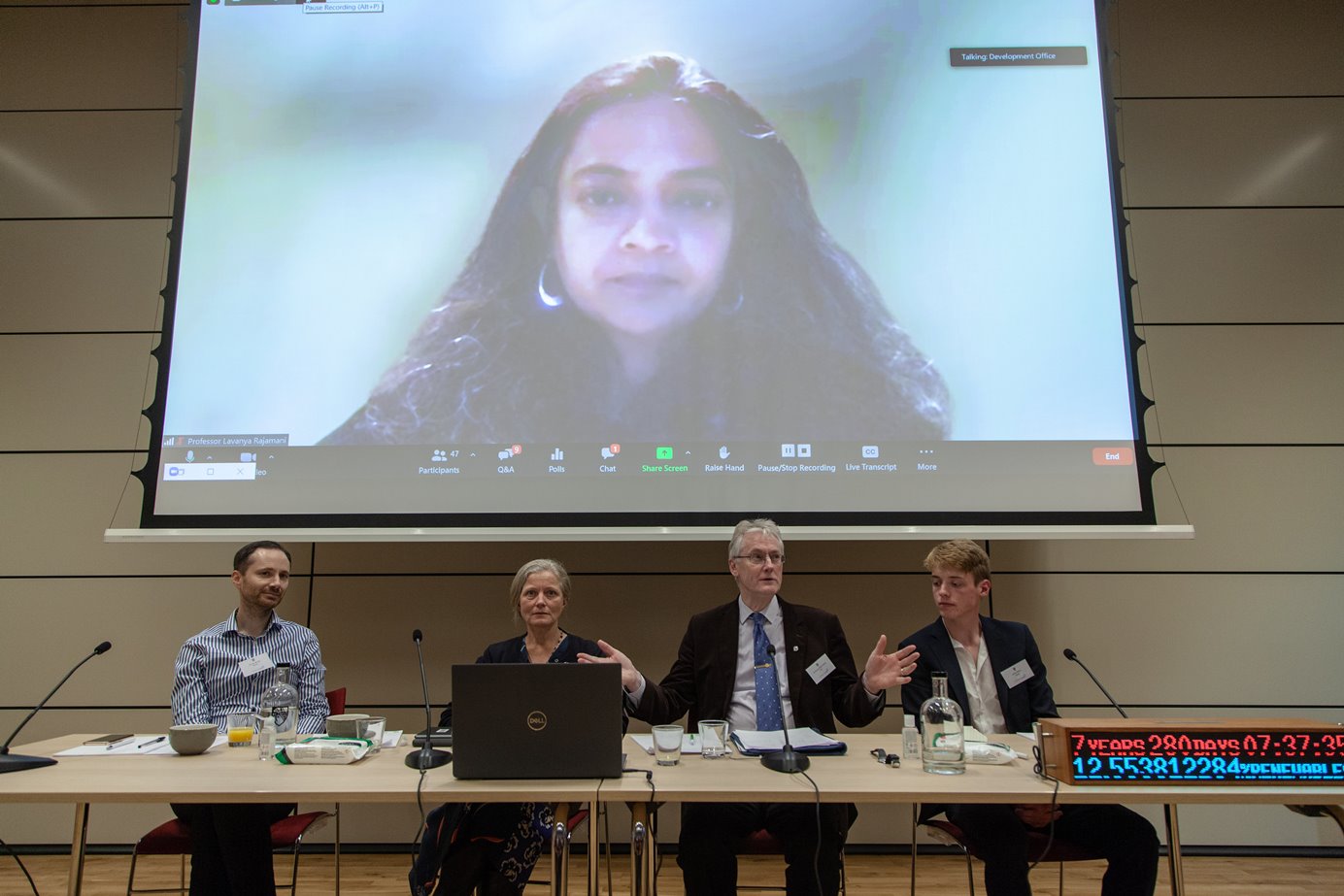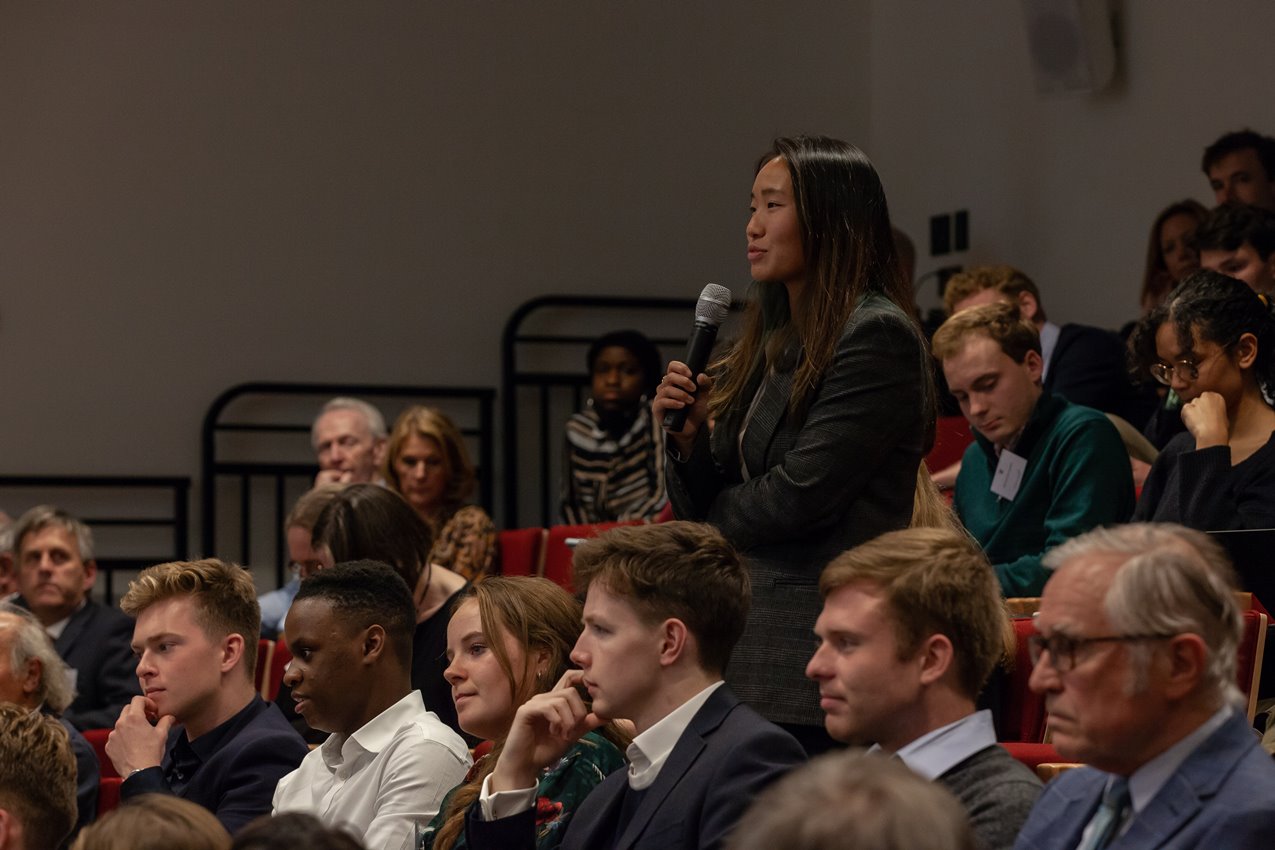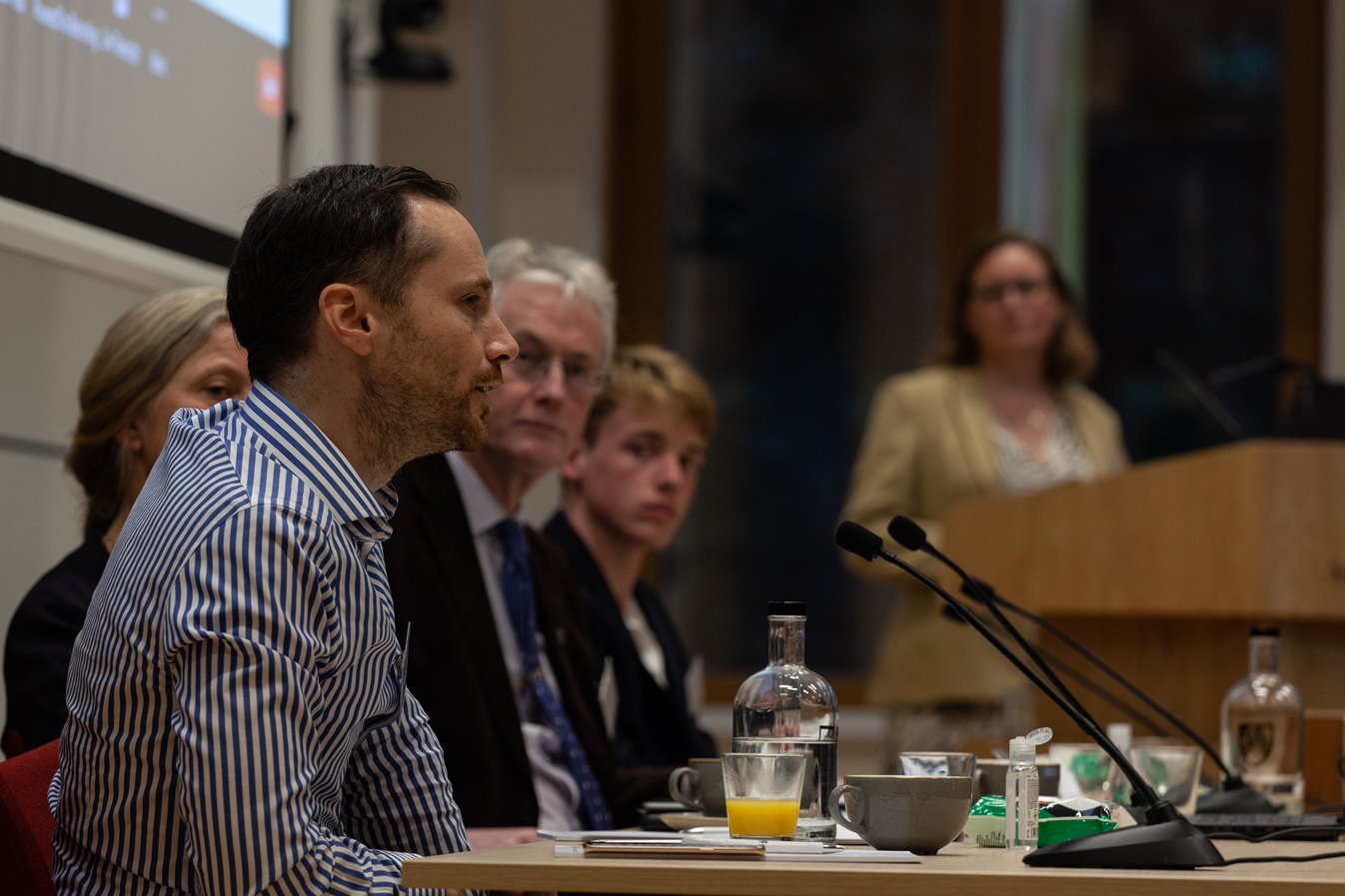The 16th William Pitt Seminar - What should come from COP26?
William Pitt Seminar 2021 - What should come from COP26?
Rescuing our climate has been the theme of the 25th anniversary year of the Corporate Partnership Programme, and the 16th William Pitt Seminar continued this by asking ‘What should come from COP26?’. Chaired by Professor Mike Hulme, a Fellow of Pembroke, we invited speakers with diverse perspectives to posit their answers to this question, using their own background, knowledge and experience, before a panel discussion and questions from the audience. The traditional format of the William Pitt Seminar took the form of a hybrid event for the first time. The livestream option enabled participation by those who could not come to Cambridge but also for one of our panellists, Professor Lavanya Rajamani from the University of Oxford. The Seminar was held in the fabulous new Selwyn Quarry Whitehouse Auditorium with state-of-the-art hybrid seminar capability and ventilation, and therefore allowing us to make the seminar as safe as possible.
The Seminar was introduced by the Master, Lord Chris Smith. An experienced contributor to the climate action cause himself, he began with an impassioned plea ‘Every year we try to focus the William Pitt Seminar on a topic of great importance and concern in the public realm. There is, I would argue, no greater topic of concern in the public realm than the one we are addressing here. Climate change is a reality for all of us, it is increasingly becoming a reality, and we need to do everything we possibly can to address the problems that it raises.’.
Our Chair, Professor Mike Hulme, Fellow of Pembroke College and Professor of Human Geography, explained that the topic of the Seminar and invited speakers were partly informed by a virtual round table over the summer with our corporate partners. Mike introduced the Seminar by asking some of the questions that climate change raises, both political and practical, these were posed in his recent blog and will face the delegates at COP26. Questions such as: how can a fair transition away from a fossil-fuel based global energy economy be delivered without stranding millions of livelihoods, especially amongst the global poor? and: who should bear the financial burdens of enacting such a transition, rich people or rich countries?
The panellists presented various perspectives on different aspects of these questions, starting with Professor Lavanya Rajamani from the University of Oxford. Lavanya writes, teaches and advises on International Climate Law and Policy. Lavanya started by drawing a distinction between COP as a moment for global reckoning on climate change and the COP as a UN negotiating process. We are far from where we need to be. Many states have made ambitious net zero pledges but there remain questions about their credibility, accountability and fairness. Lavanya illustrated some of the issues presented by these pledges, and how the COP process can address these.
For the first time we had a student speaker on the William Pitt Seminar panel. James Miller is an undergraduate at Pembroke studying Natural Sciences and is a climate activist and film-maker. He considered the challenges that young people face when dealing with climate issues, but also described compelling evidence of the youth environmental movement making a real difference. Young people are directly engaged in COP26, by co-ordinating youth strikes, by providing youth-led events and talks at the summit, and by being formally involved in the negotiation process through the UN’s youth constituency, YOUNGO. James ended by revealing his portable climate clock, with the top numbers representing a deadline (counting down the time we have left before we overrun our carbon budget for 1.5 degrees), and the lower number as a source of hope (counting up the percentage of the world’s energy being provided by renewable resources). James has set this up in Glasgow as a light projection on a 7-storey building to instil a sense of urgency in the world leaders negotiating at the COP.
Dr Lee de-Wit is a lecturer in Political Psychology at Cambridge. Lee’s research explores how a deeper understanding of psychology can help address societal challenges such as climate change. As a psychologist, Lee is not only worried about climate change and its impact on the natural world, but also the effect on the functioning of western democratic societies. When societies are placed under stress, or governed under resource scarcity, then aspects of psychology kick in that can lead us into dangerous and un-cooperative spaces. There is a therefore not only an immediate risk from the environmental impact, but also the potential deterioration in the kind of world order that we have come to rely on. However, Lee is optimistic for change and explored the specific areas where psychology can contribute to behaviour change.
Our final speaker was Emma Howard Boyd, Chair of the Environment Agency. The 16th William Pitt Seminar was a part of the Cambridge Zero 2021 Festival and Emma noted that this highlights that Cambridge is a melting pot of history, continuity, innovation and change: ‘The conservative, the progressive and the radical learn together in the spirit of shared endeavour, and that is why Cambridge continues to be a fulcrum of this country’s fortunes’. Emma argued strongly that more women also need to be in a position of decision-making power. Finance has huge power to drive transformational shifts. Emma is co-chair of the coalition for climate resilient investment - by pricing climate risks and including them in up-front financial decision-making, they aim to incentivise a shift towards greater resilience, particularly for infrastructure. The unifying theme of Emma’s presentation was urgency, there is still time to take action, but only just.
Chair Mike Hulme then summarised some of the common themes, tensions and further questions for the panel, starting with a question about how the response to the COVID challenge might help to tell us how to navigate our way through the challenge of climate change. As part of the session, the panel provided various perspectives on ambition, gaps, levers, disincentives, creativity, actions and optimism.
After a short break, the online and physical audience were able to ask their questions of the panel before Mike brought the conversation to a close and thanked all of the contributors. The audience then made their way to Pembroke for more discussion over a fantastic plant-based and locally-sourced dinner including a tarte tatin made with apples taken from Pembroke’s orchard and beer from a local brewery, in line with our aim to make the 16th William Pitt Seminar as sustainable as possible.
